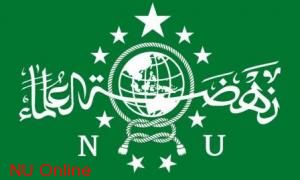NU: Govt should give more assistance to religious organizations
NU Online · Selasa, 10 Maret 2015 | 12:07 WIB
Jakarta, NU Online
NU Chairman H Slamet Effendy Yusuf said that religious social organizations such as NU and Muhammadiyah having concretely contributed to the public should be entitled to more support from the government than political parties through schools, boarding schools, hospitals, orphanages and other social services.<>
"So the political parties, according to the minister's idea, will be given a large enough assistance, I think at the same time, religious organizations that directly build the nation, such as NU and Muhammadiyah in an Islamic environment, as well as friends from other religions, will also be given direct assistance from the Budget allocation," he told NU Online here on Tuesday (10/3).
Thus, this development could take place simultaneously in sectors financed and worked by the government and private sectors.
"NU through pesantren and madrassa (religious schools), Muhammadiyah through its schools, Persis and also other Islamic organizations can reach people having been excluded from the government programs," he said.
He explained, organizations such as NU also received assistance from the government, adding that the need was rocketting but the assistance given was only a few cents.
"We support educational and religious activities, including civic awareness activities conducted by such organizations as NU and Muhammadiyah have outstanding results."
He pointed out that if there were no such organizations as NU and Muhammadiyah, then there was the danger of Islamic internationalism, the state would not be able to do much.
"It's time for the governmnet to thank them, including by providing significant budget as part of the state budget for community development."
As reported, in an effort to prevent corrupt practices among politicians, the government is mulling a plan to increase the annual funding for political parties to Rp 1 trillion (US$76.75 million).
Home Minister Tjahjo Kumolo said that the funding should be given to each political party to help repair the image of politicians and their political parties that had been tainted by graft cases in the past decade.
Politicians, especially those sitting in public office and representative bodies, have complained about the high costs of politics.
Last year, lawmakers at the House of Representatives temporarily revoked the direct-election mechanism for regional heads, arguing that the process was too costly for candidates and political parties.
Having returned to the direct-election system, local elections will be held simultaneously starting this December in another move toward efficiency.
Tjahjo admitted that the plan to increase state funding might sound “inappropriate” now, but ensured that it would be a “feasible option” in the future to force transparency as well as accountability among political parties.
“Political parties are the pillars of democracy. Thus it’s important for the government to support them,” the politician from the ruling Indonesian Democratic Party of Struggle (PDI-P) said.
Tjahjo added that the increased state funding should be effective after the 2019 general election.
The proposal quickly gained support from politicians, particularly House members, who referred to Tjahjo’s proposal as “not new”, as lawmakers had previously rallied support to revise the existing law on political parties to allow bigger state allocations to finance political parties.
Editing by Sudarto Murtaufiq
Terpopuler
1
Khutbah Jumat: Ramadhan dan Kesempatan yang Tidak Selalu Terulang
2
Innalillah, Ulama Mazhab Syafii asal Suriah Syekh Hasan Hitou Wafat dalam Usia 83 Tahun
3
Kultum Ramadhan: Lebih Baik Sedikit tapi Istiqamah
4
Khutbah Jumat: Ramadhan, Melatih Sabar, Memperkuat Syukur
5
Keluar Mani yang Tidak dan Membatalkan Puasa
6
Khutbah Jumat: Tiga Kebahagiaan Orang Puasa
Terkini
Lihat Semua
















